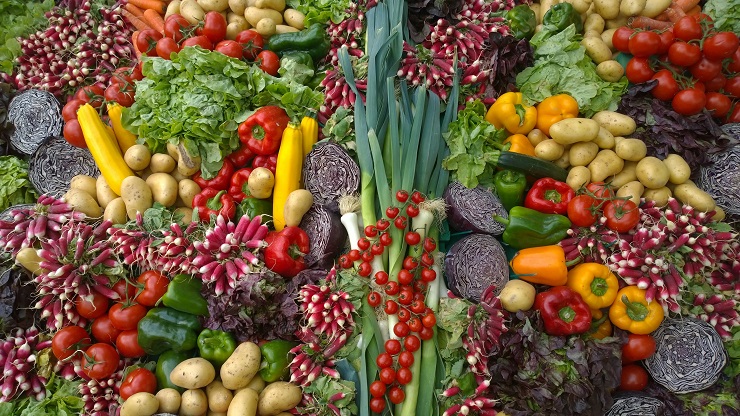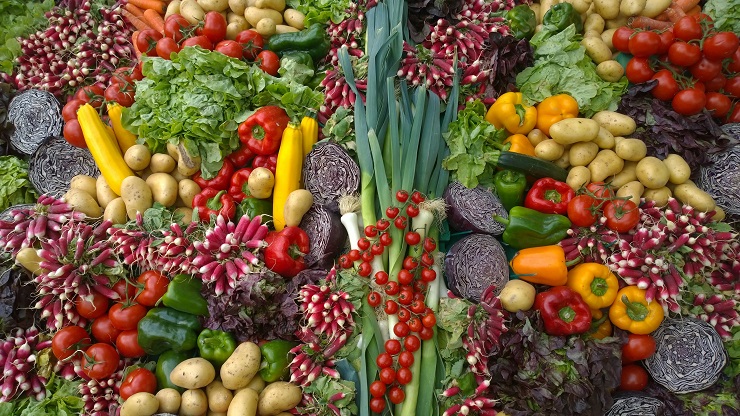Disclaimer: We understand that the fertility journey can be challenging and emotional for many individuals. This article aims to provide expert insights on preconception health for those seeking information and support. We acknowledge that everyone's journey is unique, and this content is not intended to cause any distress or guilt. If you find this information triggering, we encourage you to prioritize your emotional well-being and seek personalised advice from healthcare professionals.

Photo by Suhyeon Choi on Unsplash
by Katia Demekhina
The foundation for a healthy pregnancy is laid months before conception even occurs
A critical and often overlooked aspect of the fertility journey is understanding the significant role that preconception health plays in the quality of the egg and the fertility outcomes. The process of preparing an egg that is released at ovulation ready for fertilisation starts three to four months before. This window presents a unique opportunity to proactively optimise one’s nutritional and lifestyle choices to enhance the chances of successful conception.
Need another motivation? Preconception is the most impactful time when it comes to epigenetics and offspring health.
Get your vitamin D levels checked
We have heard a lot about the importance of vitamin D for immune and bone health, but it's also essential for successful conception and pregnancy. Did you know that the odds of pregnancy are four times higher in those with high vitamin D levels? Vitamin D plays a role in hormone balance, influences the level of inflammation in the body, helps make the uterine lining more receptive to pregnancy and modulates immune factors that are involved in miscarriage.
The bare min you want to see on your blood test? 30ng/ml (75nmol/l), but ideally 40ng/ml (100nmol/L).
Eat your colourful veggies, nuts and seeds
The foundation for a healthy pregnancy is laid months before conception even occurs
A critical and often overlooked aspect of the fertility journey is understanding the significant role that preconception health plays in the quality of the egg and the fertility outcomes. The process of preparing an egg that is released at ovulation ready for fertilisation starts three to four months before. This window presents a unique opportunity to proactively optimise one’s nutritional and lifestyle choices to enhance the chances of successful conception.
Need another motivation? Preconception is the most impactful time when it comes to epigenetics and offspring health.
Get your vitamin D levels checked
We have heard a lot about the importance of vitamin D for immune and bone health, but it's also essential for successful conception and pregnancy. Did you know that the odds of pregnancy are four times higher in those with high vitamin D levels? Vitamin D plays a role in hormone balance, influences the level of inflammation in the body, helps make the uterine lining more receptive to pregnancy and modulates immune factors that are involved in miscarriage.
The bare min you want to see on your blood test? 30ng/ml (75nmol/l), but ideally 40ng/ml (100nmol/L).
Eat your colourful veggies, nuts and seeds

Photo by Chantal Garnier on Unsplash
The foods that have the strongest links to improved fertility success rates are vegetables, fruit (esp. berries), whole grains, legumes, fish and olive oil. This is basically the foundation of the Mediterranean Diet, which emphasizes fish, olive oil, antioxidant-rich vegetables and nuts and seeds. Such a diet has been shown to lower inflammation and oxidative stress - the two factors that can impact fertility and embryonic development.
As oxidative stress is a major mechanism underlying ovarian ageing, vegetables’ ability to protect against oxidative stress is an important mechanism to support fertility outcomes. “Eat the rainbow” is a good advice as different colours of veg indicate different antioxidant compounds, which all have specific properties and health benefits. Almost all vegetables are superfoods for fertility.
Fats found in extra virgin olive oil, as well as those in nuts and seeds (make sure these are raw) are rich in antioxidants and are the main components of fats found naturally in the developing egg. Consumption of these fats has been linked to improved fertility.
Eat your oily fish
Women with a sufficient level of omega:3 fats typically have higher-quality embryos. Specific omega:3s found in oily fish are particularly linked to better odds of conceiving. This may be because omega:3 fats reduce inflammation, support progesterone production and increase uterine blood flow. They also improve sperm health and protects them from oxidative stress, and improves egg membranes, making them ‘supple’ and easier to penetrate by sperm. Once pregnant, these fats are also essential for the growing baby's brain devlopment.
The optimal dietary intake for improving fertility is to eat omega 3-rich fatty fish (e.g. salmon, sardines, mackerel, herring) two to three times a week
If you don’t eat oily fish at least two times a week consider a good quality fish oil supplement.
Manage your blood sugar
Research shows that women with high but still normal blood sugar levels levels may be half as likely to fall pregnant over a six-month period compared to women with lower levels. And that higher blood sugar history can also impact pregnancy outcomes. This suggests that having frequent high blood sugar can compromise fertility.
We also know from a large longitudinal study that women who eat more of the quickly digested carbohydrates that raise blood sugar are 78% more likely to have ovulatory infertility than women who eat slowly digested carbohydrates.
This is because high sugar (and subsequent high insulin levels) disrupt the delicate balance of other hormones that regulate the reproductive system. In addition, high blood sugar and insulin levels impair mitochondrial function (our little energy batteries of the cells). The resulting decreased energy levels may cause the cellular machinery that processes chromones in the egg to malfunction. High blood sugar levels also lead to the production of molecules that result in oxidative stress and damage to egg and sperm quality.
One of the key goals of a fertility “diet” is to balance blood sugar and insulin levels. We can do this by choosing the right kinds of carbohydrates and lowering overall carbohydrate intake, while increasing protein.
Rediscover our article dedicated to biohacking with simple tips to balance blood sugar and combat glucose spikes.
Breathe your way through stress
As oxidative stress is a major mechanism underlying ovarian ageing, vegetables’ ability to protect against oxidative stress is an important mechanism to support fertility outcomes. “Eat the rainbow” is a good advice as different colours of veg indicate different antioxidant compounds, which all have specific properties and health benefits. Almost all vegetables are superfoods for fertility.
Fats found in extra virgin olive oil, as well as those in nuts and seeds (make sure these are raw) are rich in antioxidants and are the main components of fats found naturally in the developing egg. Consumption of these fats has been linked to improved fertility.
Eat your oily fish
Women with a sufficient level of omega:3 fats typically have higher-quality embryos. Specific omega:3s found in oily fish are particularly linked to better odds of conceiving. This may be because omega:3 fats reduce inflammation, support progesterone production and increase uterine blood flow. They also improve sperm health and protects them from oxidative stress, and improves egg membranes, making them ‘supple’ and easier to penetrate by sperm. Once pregnant, these fats are also essential for the growing baby's brain devlopment.
The optimal dietary intake for improving fertility is to eat omega 3-rich fatty fish (e.g. salmon, sardines, mackerel, herring) two to three times a week
If you don’t eat oily fish at least two times a week consider a good quality fish oil supplement.
Manage your blood sugar
Research shows that women with high but still normal blood sugar levels levels may be half as likely to fall pregnant over a six-month period compared to women with lower levels. And that higher blood sugar history can also impact pregnancy outcomes. This suggests that having frequent high blood sugar can compromise fertility.
We also know from a large longitudinal study that women who eat more of the quickly digested carbohydrates that raise blood sugar are 78% more likely to have ovulatory infertility than women who eat slowly digested carbohydrates.
This is because high sugar (and subsequent high insulin levels) disrupt the delicate balance of other hormones that regulate the reproductive system. In addition, high blood sugar and insulin levels impair mitochondrial function (our little energy batteries of the cells). The resulting decreased energy levels may cause the cellular machinery that processes chromones in the egg to malfunction. High blood sugar levels also lead to the production of molecules that result in oxidative stress and damage to egg and sperm quality.
One of the key goals of a fertility “diet” is to balance blood sugar and insulin levels. We can do this by choosing the right kinds of carbohydrates and lowering overall carbohydrate intake, while increasing protein.
Rediscover our article dedicated to biohacking with simple tips to balance blood sugar and combat glucose spikes.
Breathe your way through stress

Stress significantly harms both female and male fertility significantly, as who needs to reproduce when we are running away from a lion (which is how our body sees stress in evolutionary terms)? Did you know that rats, when stressed out, actually end up with shrunken testicles? In adults, stress affects ovulation in women and testosterone level in men. Stress is also linked to erratic blood sugar fluctuations (which we discussed above).
Yet we all know how stressful a journey to a successful pregnancy can be. The good news? Even the simplest intervention for stress when used consistently improves success rates. So choose anything that works for you and do it regularly. Deep breathing (I love the 4:7:8 technique)? Meditation? Reflexology? Yoga (and I am talking about the relaxing kind) or tai chi? Or even simply laughing with friends and being in nature.
Limit alcohol and say no to smoking.
While this is an obvious point for a woman who is pregnant, alcohol and cigarette smoke have a notable effect on fertility outcomes. With smoking, it’s a firm no when it comes to fertility and offspring health. Even second-hand smoke gets a firm “no” from the data.
Women who abstained from all alcohol had a 90% chance of achieving pregnancy and live birth within 3 years. However, not everyone may need to fully abstain as even reducing alcohol consumption to one or two glasses of wine a week showed a significant improvement in conception success rates.
Maintain a healthy weight – too low is also an issue
Both high and low weight are an issue when it comes to fertility. Obesity is associated with lower pregnancy rates, lower live births and higher miscarriage rates. It also puts both mom and baby at risk as it is associated with gestational diabetes and delivery complications for moms and the risk of obesity and diabetes for children themselves later in life. In men,
excess weight can lead to reduced sperm quality, including lower sperm count and motility, which can affect the chances of successful conception. Low weight is also an issue as it may lead to infertility as a result of anovulation.
Work with a nutritionist or a health coach before starting your journey to parenthood to optimise your weight and pregnancy success rate (and the health of your offspring).
Avoid exposure to harmful chemicals
BPA, commonly found in plastics used in food and beverage containers, has been linked to hormonal imbalances that may adversely affect fertility in both men and women. Even a low dose of BPA exposure during the final stages of egg development can be enough to interfere with the process and results in abnormalities in the egg with subsequent conception and pregnancy complications.
DEHP is another chemical that gets into our bodies through food. This is especially prominent in the case of fast food and highly processed food, where the manufacturing and processing procedures often involve the use of plastic containers and equipment that may contain DEHP. The heat involved in the manufacturing process, including scalding water used for sterilisation, can facilitate the leaching of DEHP from the plastic materials into the food.
Biggest wins when it comes to limiting exposure to BPA and DEHP?
✔️ Limiting ready-made foods or take away foods in plastic containers.
✔️ Carry your own metal or glass water bottle with you rather than buying water in plastic bottles that have been exposed to temperature fluctuations.
✔️Canned tomatoes is one of the most important foods to avoid as the acidity increases leaching of chemicals from the can lining. Buy your tomatoes in glass jars instead.
✔️Eat plenty of such folate-rich foods as berries, oranges, spinach, broccoli, cauliflower, kale, asparagus, avocado, lentils daily. Research shows that natural folate from food may help cancel out some of the BPA exposure.
Another major way we are exposed to harmful chemicals is through phthalates used in products like hairspray, perfume, nail polish, air fresheners and fabric softeners. The problem with phthalates? Among others, they block our body’s production of natural antioxidant enzymes - special proteins produced by our body that act as defenders against harmful molecules called free radicals, which is key factor in both egg and sperm health. Choose the products you put on your body wisely.
Consider a prenatal multivitamin
Taking a prenatal multivitamin is an important step in preparing for pregnancy. Ideally, you should start to take these at least three months before trying to conceive. Prenatal multivitamins help optimise nutrients levels. Just taking prenatal multivitamin have been shown to improve pregnancy rates in women. Remember to choose one that has methylated folate rather than folic acid.
Final thought I want to leave you with? Communicate and seek support early. My wish is that we could get couples to come and see nutritionists much sooner, ideally before they even begin to try for a baby. By seeking support early in the conception journey, we can identify and address underlying issues (which sometimes can be as simple as nutrient deficiencies) and address this, helping the journey to parenthood smoother and more successful.
There is strong evidence that preparing the couple through work on their nutrition, lifestyle and optimising their nutrient status with an appropriate nutraceutical program not only increases the success rate of IVF, but improves the natural conception rate of infertile couples who often experience a successful natural pregnancy. For example, a 2010 study of 367 couples with a previous history of infertility and miscarriage has shown that proper preparation resulted in better outcomes, with more than 80% of previously infertile couples delivering healthy babies.
Furthermore, it is not just about getting pregnant. Preconception care is the most impactful time for childhood, adolescent and adult health outcomes. Spending three to four months to prepare your body for conception not only increases one’s chances of conception but also optimises the health outcomes of our children.
Yet we all know how stressful a journey to a successful pregnancy can be. The good news? Even the simplest intervention for stress when used consistently improves success rates. So choose anything that works for you and do it regularly. Deep breathing (I love the 4:7:8 technique)? Meditation? Reflexology? Yoga (and I am talking about the relaxing kind) or tai chi? Or even simply laughing with friends and being in nature.
Limit alcohol and say no to smoking.
While this is an obvious point for a woman who is pregnant, alcohol and cigarette smoke have a notable effect on fertility outcomes. With smoking, it’s a firm no when it comes to fertility and offspring health. Even second-hand smoke gets a firm “no” from the data.
Women who abstained from all alcohol had a 90% chance of achieving pregnancy and live birth within 3 years. However, not everyone may need to fully abstain as even reducing alcohol consumption to one or two glasses of wine a week showed a significant improvement in conception success rates.
Maintain a healthy weight – too low is also an issue
Both high and low weight are an issue when it comes to fertility. Obesity is associated with lower pregnancy rates, lower live births and higher miscarriage rates. It also puts both mom and baby at risk as it is associated with gestational diabetes and delivery complications for moms and the risk of obesity and diabetes for children themselves later in life. In men,
excess weight can lead to reduced sperm quality, including lower sperm count and motility, which can affect the chances of successful conception. Low weight is also an issue as it may lead to infertility as a result of anovulation.
Work with a nutritionist or a health coach before starting your journey to parenthood to optimise your weight and pregnancy success rate (and the health of your offspring).
Avoid exposure to harmful chemicals
BPA, commonly found in plastics used in food and beverage containers, has been linked to hormonal imbalances that may adversely affect fertility in both men and women. Even a low dose of BPA exposure during the final stages of egg development can be enough to interfere with the process and results in abnormalities in the egg with subsequent conception and pregnancy complications.
DEHP is another chemical that gets into our bodies through food. This is especially prominent in the case of fast food and highly processed food, where the manufacturing and processing procedures often involve the use of plastic containers and equipment that may contain DEHP. The heat involved in the manufacturing process, including scalding water used for sterilisation, can facilitate the leaching of DEHP from the plastic materials into the food.
Biggest wins when it comes to limiting exposure to BPA and DEHP?
✔️ Limiting ready-made foods or take away foods in plastic containers.
✔️ Carry your own metal or glass water bottle with you rather than buying water in plastic bottles that have been exposed to temperature fluctuations.
✔️Canned tomatoes is one of the most important foods to avoid as the acidity increases leaching of chemicals from the can lining. Buy your tomatoes in glass jars instead.
✔️Eat plenty of such folate-rich foods as berries, oranges, spinach, broccoli, cauliflower, kale, asparagus, avocado, lentils daily. Research shows that natural folate from food may help cancel out some of the BPA exposure.
Another major way we are exposed to harmful chemicals is through phthalates used in products like hairspray, perfume, nail polish, air fresheners and fabric softeners. The problem with phthalates? Among others, they block our body’s production of natural antioxidant enzymes - special proteins produced by our body that act as defenders against harmful molecules called free radicals, which is key factor in both egg and sperm health. Choose the products you put on your body wisely.
Consider a prenatal multivitamin
Taking a prenatal multivitamin is an important step in preparing for pregnancy. Ideally, you should start to take these at least three months before trying to conceive. Prenatal multivitamins help optimise nutrients levels. Just taking prenatal multivitamin have been shown to improve pregnancy rates in women. Remember to choose one that has methylated folate rather than folic acid.
Final thought I want to leave you with? Communicate and seek support early. My wish is that we could get couples to come and see nutritionists much sooner, ideally before they even begin to try for a baby. By seeking support early in the conception journey, we can identify and address underlying issues (which sometimes can be as simple as nutrient deficiencies) and address this, helping the journey to parenthood smoother and more successful.
There is strong evidence that preparing the couple through work on their nutrition, lifestyle and optimising their nutrient status with an appropriate nutraceutical program not only increases the success rate of IVF, but improves the natural conception rate of infertile couples who often experience a successful natural pregnancy. For example, a 2010 study of 367 couples with a previous history of infertility and miscarriage has shown that proper preparation resulted in better outcomes, with more than 80% of previously infertile couples delivering healthy babies.
Furthermore, it is not just about getting pregnant. Preconception care is the most impactful time for childhood, adolescent and adult health outcomes. Spending three to four months to prepare your body for conception not only increases one’s chances of conception but also optimises the health outcomes of our children.
About Katia Demekhina
Katia Demekhina of Omni Vitality is a nutritional therapist & female hormone health specialist who is very passionate about helping women with hormone problems.
Her expertise lies in:
Katia Demekhina of Omni Vitality is a nutritional therapist & female hormone health specialist who is very passionate about helping women with hormone problems.
Her expertise lies in:
- Menstrual Problems
- Women’s Hormonal Conditions
- Fertility
In addition to her own therapy she is also a practionner at IMI (the largest natural medicine clinic in Hong Kong): https://www.imi.com.hk/nutritional-therapist-katia-demekhina.html
In addition to her own therapy she is also a practionner at IMI (the largest natural medicine clinic in Hong Kong): https://www.imi.com.hk/nutritional-therapist-katia-demekhina.html









